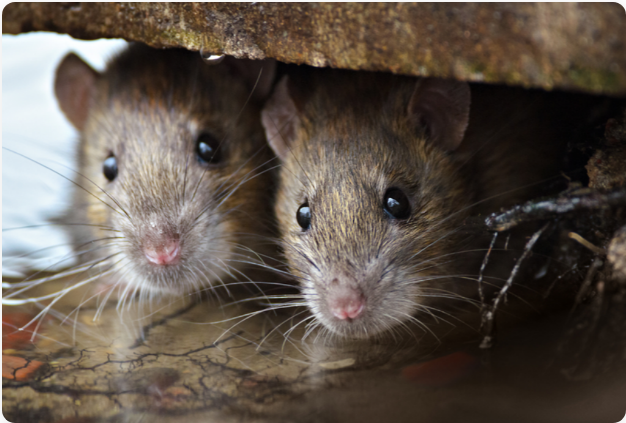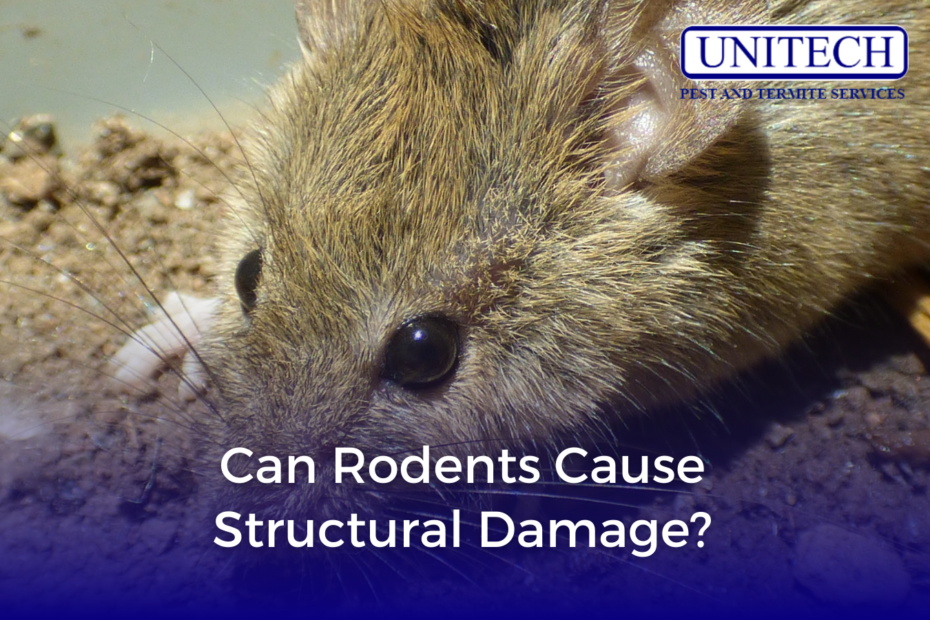Rodents are more than just pests that invade our homes. Small creatures, such as rats and mice, can not only pose health risks but also cause significant structural damage. They chew on various materials and create nests in places that can weaken the structure of your house. Understanding how rodents cause this damage is crucial in taking steps for effective rodent control.

How Rodents Cause Structural Damage
Chewing Through Materials
Rodents have strong teeth that grow continuously, so they need to gnaw on objects to keep them sharp and at a manageable length. This habit leads them to chew through various materials commonly found in homes. These materials include:
- Wood: Rodents often chew on wooden beams, floors, and walls, which can compromise the structural integrity of your home.
- Wires: When rodents chew on electrical wires, it can lead to short circuits and even fires.
- Pipes: Rodent gnawing can also cause leaks by damaging plastic and rubber pipes.
Nesting in Walls and Insulation
Rodents seek warm and secluded places to build their nests. Unfortunately, this often means they burrow into walls and insulation. When rodents nest in these areas:
- Insulation Damage: They tear apart insulation, reducing its effectiveness. This can lead to higher energy bills as your heating and cooling systems work harder.
- Structural Weakness: Over time, nesting can create voids in walls and ceilings, weakening the structure.
The Impact on Electrical Systems
Chewing on Electrical Wires
One of the most dangerous ways rodents cause structural damage is by chewing on electrical wires. This act not only damages your home’s wiring but also poses a fire hazard. Electrical fires sparked by rodent-chewed wires can cause extensive damage to your property.
Short Circuits and Power Outages
When rodents damage electrical systems, it can lead to short circuits and power outages. These issues can be costly to repair and dangerous if left unaddressed. Regular rodent control measures can help prevent such problems.
The Problem with Plumbing
Damage to Pipes
Rodents often chew on pipes made from plastic and rubber. This behavior can cause leaks and water damage. Leaking pipes can lead to mold growth, which further weakens structural elements and affects indoor air quality.
Flooding Risks
In severe cases, gnawed pipes can burst, leading to flooding. Flooding not only damages the structure but also personal belongings and can create a health hazard.
Effective Rodent Control Methods
Sealing Entry Points
One of the first steps in rodent control is to seal any entry points. Ensure that there are no gaps or holes in your home’s exterior where rodents can enter.
Traps and Baits
Using traps and baits can help reduce the rodent population in your home. There are various types of traps available, including snap traps and live traps.
Professional Pest Control
For severe infestations, professional pest control services offer more comprehensive solutions. They can identify all entry points, provide effective treatment, and offer advice on preventing future infestations.
Guarding Your Home Against Rodent Damage: The Essential Guide to Effective Pest Control
Rodents can indeed cause significant structural damage to your home. From chewing on materials to nesting in walls, their presence can weaken the integrity of your house and pose risks like electrical fires and water damage. Effective rodent control is essential to protect your home and prevent costly repairs. By taking timely measures, you can safeguard your property from these destructive pests.
To keep your home safe from rodents, act before it’s too late. Unitech Pest provides professional pest control services to handle severe infestations. Our experts have the know-how and tools to find and block entry points, clear existing infestations, and prevent new ones. Protect your home from damage. Contact Unitech Pest for a consultation and start your journey to a rodent-free home.


